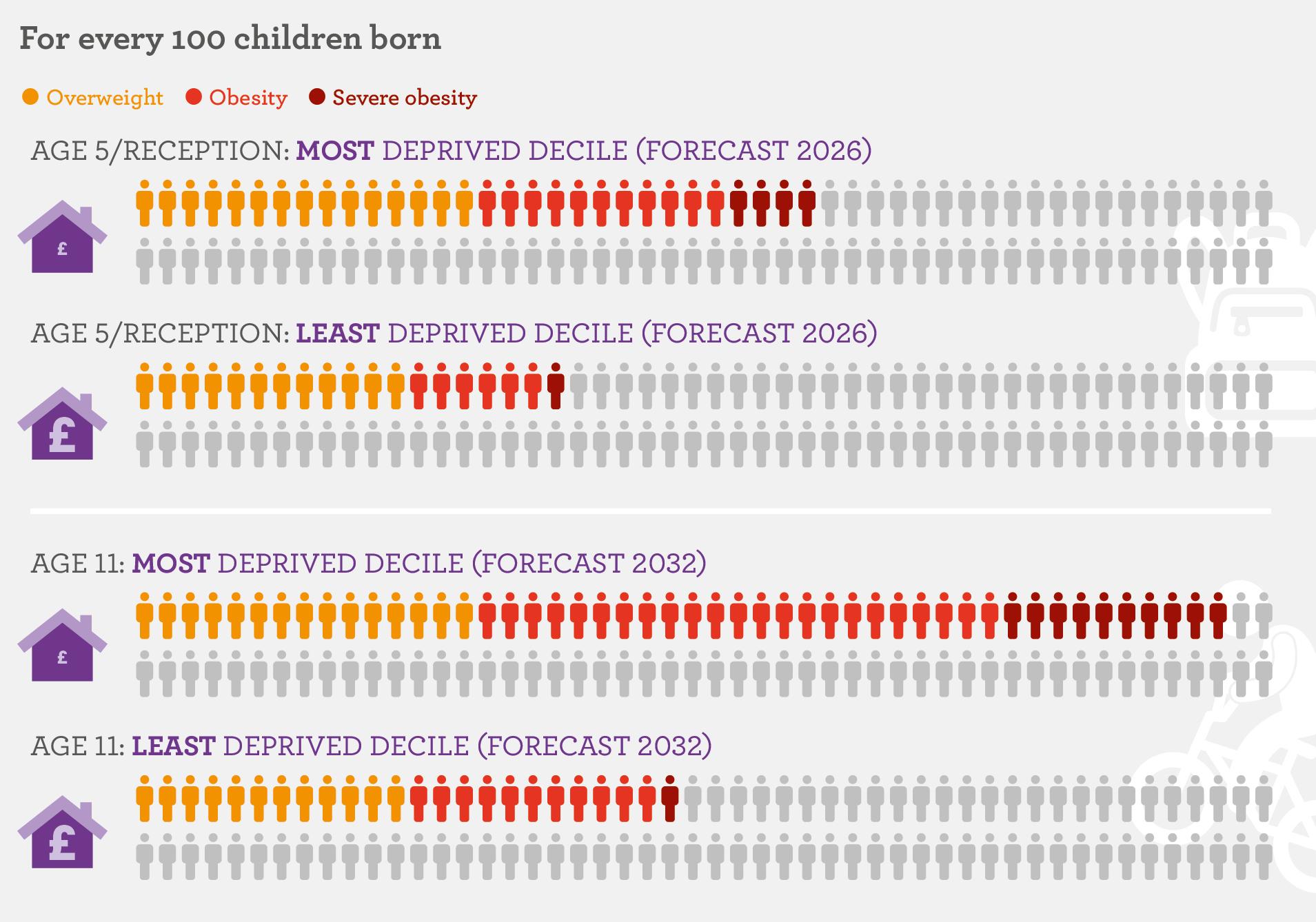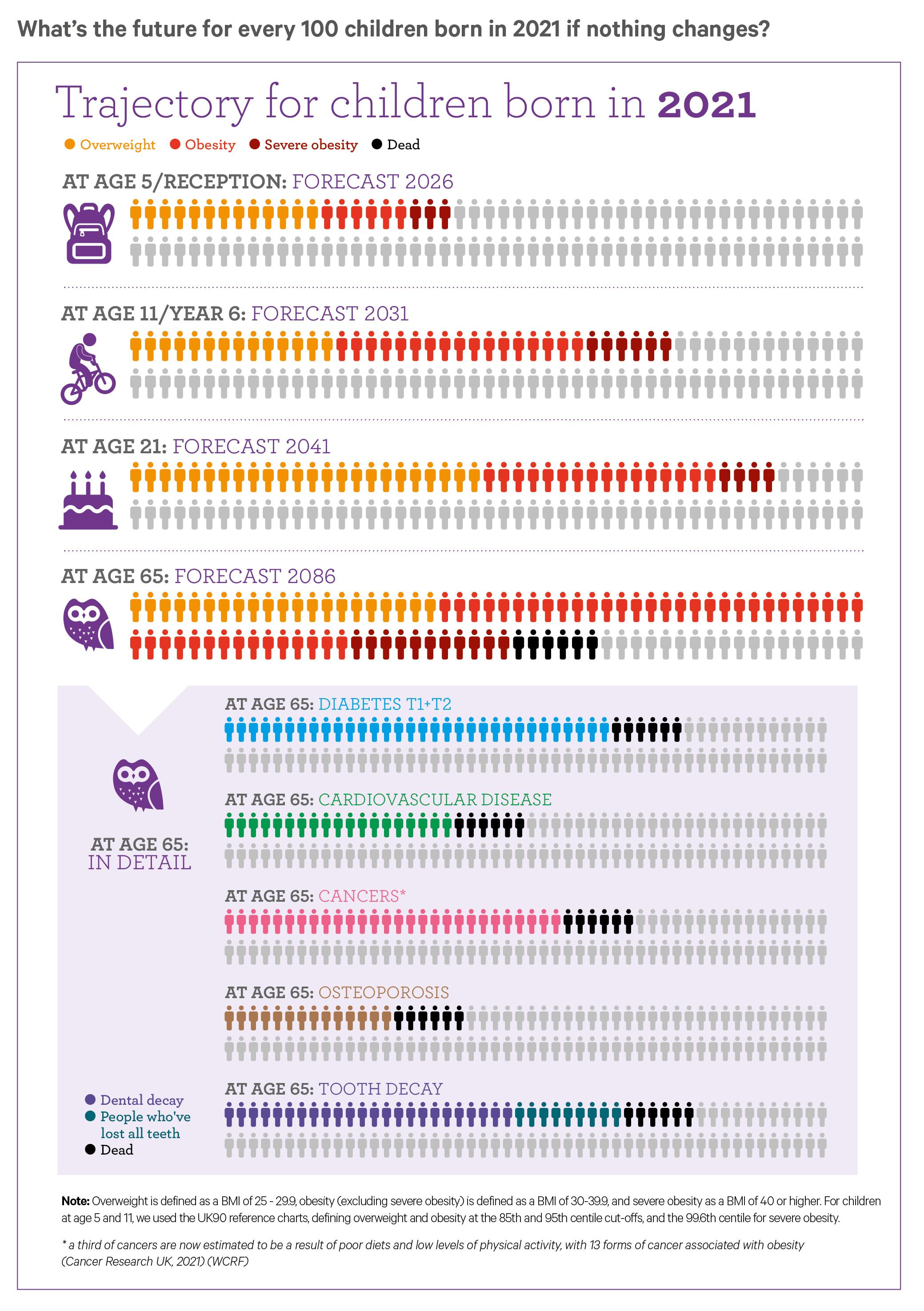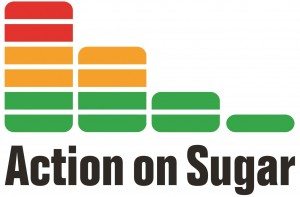07 July 2021
Ahead of the National Food Strategy New Report Shows Inequity, Obesity Levels and Affordability of Healthy Food are Top Priorities
The Broken Plate Report released today from The Food Foundation shows the state of our current food system and the huge challenges we face in ensuring that everyone in the UK can afford and access a healthy and sustainable diet.
- The National Food Strategy, due out this month, needs to urgently address growing obesity levels, dietary inequality, and critically low levels of veg consumption in children and adults.
- The Broken Plate Report funded by the Nuffield Foundation, shows that the impact of our food system continues to be hugely unequal, with children from the poorest 10% of households being ten times more likely to be living with severe obesity than the richest 10% at age 11.
- The report examines ten different areas and provides us with a ‘state of the nation’ view of how broken our current food system is.
- In the most deprived local authorities, 1 in 3 places to buy food are fast food outlets. This compares with 1 in 5 in least deprived.
- Amputations due to diabetes have increased by 24% in the past 5 years. There are almost 10,000 diabetes-related amputations carried out on average per year.
- More healthy food is 3 times more expensive than less healthy food calorie for calorie. Foods high in sugar and fat are just 40% of the cost of fruit and veg per 1,000 calories.
- The poorest 5th of UK households would have to spend 40% of their disposable income on food to meet the Governments Eatwell Guide compared to just 7% for the richest fifth of households.
Wednesday 7th July - The Food Foundation today release their flagship annual Broken Plate report, which uses ten metrics to provide a powerful picture of the current UK food system and the lack of progress made to improve food security, obesity levels and sustainability. This year’s Broken Plate report is the third in the series, tracking UK progress in changing the food environment so that diets can transition towards more healthy and sustainable outcomes.
The report is published ahead of the National Food Strategy led by Henry Dimbleby, which is expected to contain strong and urgent recommendations to government.
The Broken Plate report clearly shows that we need Government and policy makers to regulate for structural changes if we are going to improve the UK’s food environment and ensure that every adult and child has access to a healthy and sustainable diet.
Critical levels of obesity, dietary inequality, and an increasingly obesogenic food environment are amongst the many metrics highlighted in the report which has been produced in collaboration with Eating Better, Action on Sugar, Neilsen, The Resolution Foundation, CEDAR and Feat at the University of Cambridge, Food DB at the University of Oxford, and University of Leeds and funded by the Nuffield Foundation.
By the time they’re 65 years old, over half of the children born in 2021 will experience diet-related disease which may affect their quality of life. Whether children are born into richer or poorer households greatly impacts on their risk of obesity as well as limiting life expectancy. Those in the most deprived decile (the poorest 10%) are ten times more likely to be living with severe obesity at age 11 than those in the least deprived decile.


Key Metrics from the report
- Advertising: Advertising spend on fruit and vegetables remains very low, with just 2.5% of total food and soft drink advertising spend going towards fruit and vegetables. This figure fell in 2020 compared to 2019.
- The affordability of a healthy diet: The poorest fifth of UK households would need to spend 40% of their disposable income on food to meet Eatwell Guide costs. This compares to just 7% for the richest fifth.
- The cost of food: More healthy foods are nearly three times as expensive as less healthy foods calorie for calorie.
- Places to buy food: 1 in 4 places to buy food are fast food outlets. The least deprived fifth of local authorities have 20% of places to buy food that are defined as fast food outlets compared with 30% in the most deprived fifth of local authorities. The area of England with the highest density of fast food outlets is Blackburn with Darwen
- Sugar in children’s food. 96% of yogurts and 92% of cereals marketed towards children contain high or medium levels of sugar
- Wages: In 2020, 25% of workers in the food sector earned the minimum wage or below compared to 11% of workers across the UK.
- Veg in ready meals: Around a fifth (22%) of ready meals are vegetarian or plant-based, with a welcome recent drop in price for vegetarian and plant-based meals.
- Weight: Children in the most deprived fifth of households are almost twice as likely to have obesity as those in the least deprived quintile by age 4-6.
- Height: Children in the UK at age 5 are on average shorter than children in other comparable high income countries. In England, children living in deprived communities are shorter than children living in wealthier communities by the time they reach age 11.
- Diabetes: There are almost 10,000 diabetes-related amputations carried out on average per year, an increase of 24% in the past 5 years.
Quotes
Anna Taylor, Executive Director at the Food Foundation said: “With the National Food Strategy just around the corner and the task of rebuilding post pandemic now underway, there has never been a more opportune time for the government and businesses to face the challenge of fixing our food environment head on. Bold action will be required if we are to safeguard the future health of our children - but is by no means impossible. This year’s Broken Plate report highlights that our current food environment is failing to deliver diets that are just, healthy or sustainable with this having very real health implications for millions of citizens.”
Laura Sandys CBE, Chair of Trustees at the Food Foundation said: “The Food Foundation publishes the Broken Plate every year to monitor the state of the food system. This is a crucial report to monitor how it is today and will in the future impact citizens. Some of this year’s finding are quite shocking and sets us all a big challenge for this year ahead, particularly those who work to change public policy and industry ambition for the benefit of consumers. Coming out of the pandemic requires us all to double our efforts to halt and reverse these extremely concerning findings.”
Professor Sir Michael Marmot said: “Improving healthy eating requires, at the minimum, an understanding of influences on nutrition and its consequences; and monitoring of progress. Broken Plate does both of these admirably and fulfils an urgent national need. It charts not only national trends – shockingly, five-year old children in the UK are shorter than in all but one of the rich countries – but inequalities. Given the unaffordability of healthy food for those on low incomes it is perhaps no surprise that by age 4-6, children in the most deprived fifth of households have strikingly higher rates of obesity than children in the least deprived fifth.”
Tim Gardam, Chief Executive of the Nuffield Foundation said: “The Food Foundation's Broken Plate report sets out what needs to change in the UK's food environment in order to give everyone access to a healthy and affordable diet. By tracking progress year on year, it is providing a comprehensive account of the extent of dietary inequalities and their consequences, as well as the links with other health and economic inequities. The report provides a powerful evidence base that challenges government and industry to provide a comprehensive policy and practice response if we are to improve people's health and well-being.”
Katharine Jenner, Campaign Director at Action on Sugar and Action on Salt said: “Our new Secretary of State for Health and Social Care must confront the food companies promoting and profiting from unhealthy processed food which, as we know, can lead to obesity and the worse outcomes from Covid-19. With ten children out of every class of thirty leaving primary school with overweight or obesity, and the overall cost of obesity to wider society estimated at £27 billion, food companies should be forced to provide healthier choices. Surely Mr Javid believes every child has the right to grow up healthy?”
Simon Billing, Executive Director at Eating Better said: "We need to create a food environment where everyone has a better chance to eat more veg, more often, as currently we’re not eating anywhere near enough, with all the health implications that brings. As we see from our Ready Meals survey, there is some progress on upping veg content, but there is much more work to do on making healthier and sustainable food mainstream and affordable for all."
Dr Kate Ellis, MRC Epidemiology Unit, University of Cambridge said: “The updated analysis shows little change in food price trends. It remains the case in the UK that the cost of healthier food is more expensive than less healthy food per calorie. For people with less money available it is likely to be harder to afford and therefore eat varied and healthy diet rich in fruit and vegetables. This leaves people reliant on less healthy, energy dense foods to make up the majority of their diet. While these price differences remain, it will be hard to tackle dietary inequalities in the UK.”
Editors' Notes
Please contact:
- Raf Bogan – 07891286340 / raf.bogan@foodfoundation.org.uk
- Jo Ralling – 07770 500858 / jo.ralling@foodfoundation.org.uk
Available for Interview – c/o jo.ralling@foodfoundation.org.uk 07770 500 858
- Anna Taylor OBE, Executive Director of Food Foundation
- Rebecca Tobi, Project Lead, The Broken Plate
Links
- Broken Plate Report 202
- Broken Plate – At A Glance Infographic
- Link to Infographics and visuals from the report
Social Media
- Twitter: @Food_Foundation
- #BrokenPlate
- #Right2Food
- #EndChildFoodPoverty
About the Food Foundation
The Food Foundation is a charity working to influence food policy and business practice, shaping a sustainable food system which makes healthy diets affordable and accessible for all. We work in partnership with researchers, campaigners, community bodies, industry, investors, government and citizens to galvanise the UK’s diverse agents of change, using surprising and inventive ideas to drive fundamental shifts in our food system. These efforts are based on the continual re-evaluation of opportunities for action, building and synthesising strong evidence, convening powerful coalitions, harnessing citizens’ voices and delivering impactful communications.
Registered Charity Number 1187611
About Broken Plate
In February 2019, the Food Foundation published its first annual flagship report. The Broken Plate presented ten vital signs revealing the health of our food system, its impact on our lives, and the remedies we must pursue. The first report showed that the UK’s food system has led the country into a national health crisis, with children and households on low incomes suffering the severest health consequences. Each year the Food Foundation publishes a new edition of The Broken Plate, providing updated statistics for the ten key metrics, new commentary on the direction of travel, and proposals for change inspired by emerging evidence.
Broken Plate Funder
The Nuffield Foundation is an independent charitable trust with a mission to advance social well-being. It funds research that informs social policy, primarily in Education, Welfare, and Justice. It also funds student programmes that provide opportunities for young people to develop skills in quantitative and scientific methods. The Nuffield Foundation is the founder and co-funder of the Nuffield Council on Bioethics, the Ada Lovelace Institute and the Nuffield Family Justice Observatory. The Foundation has funded this project, but the views expressed are those of the authors and not necessarily the Foundation. Visit www.nuffieldfoundation.org









